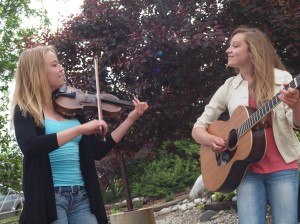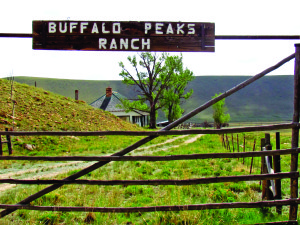by Peter Anderson
Letter to a Once-Young Swamper
It is the summer of 1976, you have just turned twenty, and you have landed your dream job. You arrive at Lees Ferry in a U-Haul truck full of vintage World War II rubber. And as you are blowing Shop-Vac air into two long sausage tubes soon to be strapped to an aluminum frame, which is itself strapped to an elongated rubber donut that holds this whole scow together, you realize that, yes, this boat is a pig compared to those powered only by muscle and oars, but at least you won’t have to run that triple-rig on the beach beside you, where an old and leathery LA woman in a faux leopard-skin bathing suit orders around her harem of boatmen who are inflating not one, but three big rafts lashed side-by-side. Your boat is a thirty-three foot barge, sleek in comparison, which will ferry you, the head boatman, fifteen passengers and a week’s worth of bread, salami, eggs, iceberg lettuce, tuna fish, potatoes, huge packages of red and white meat, cases upon cases of cold Coors, and of course, a Porta-Potty, down the Colorado to Lake Mead. You will spend ten days riding in the back of the barge, savoring the changing palette of the limestones, sandstones and shales that seduced you after that first trip down the river years ago. And you will breathe in the fumes of a Mercury outboard, admiring the skills of your ex-army boss boatman who pirouettes this big baloney boat around massive boils of whitewater foaming up out of impossibly huge river craters that could swallow a mobile home without spitting out the evidence. Clearly, the river says, you do not know your ass from a hole in the ground.
Now you have a few trips under your belt and you are a seasoned swamper, which is really just another way of saying Big Ditch longshoreman (without union pay) who occasionally runs a rapid or two, but who mostly ferries stuff from boat to beach and beach to boat, bushwacks through tamarisk thickets looking for a weedy trunk thick enough to tie a bow line to, pumps air back into the neoprene pig in the cool canyon morning, digs holes underneath a chemical toilet known as the groover, and fills them up with sand after the last of his passengers have made their post-breakfast deposits. This is not glamorous work, but at least you know the difference between your ass and this hole in the ground.
Soon you are beginning to dream of the river at night. It helps that you sleep out on the boat – this big old barge is good for that – although you do wake from time to time imagining you have come unmoored and are headed downriver to Crystal. You jump up and check the rope and thank Tao you are still tethered to solid ground, so you climb back into your bag. And before it is time to get up and kindle a fire for morning coffee, you savor a few dreamtime lines – gracefully steering the big barge down through the rocky-fanged gap at the head of Horn Creek or gliding down one tongue of glassy green water after another into the shining goodtime waves of the rapids you have come to know as the gems – Turquoise, Sapphire, Ruby. And later, during your waking hours, you accept a pinch of Copenhagen from your boot camp boss after Havasu, which will help you stay awake as you motor the long stretch of post-lunch flat water down to Lava Falls, where you go up on the ledge above the river, and stare into the great frothing mess of the BIG ONE until the columnar lines in the basalt across the river seem to be melting in the sun. Your mind wanders while your boot camp boss describes his line through Lava. And then he says, well, are you ready to run it? And you hope like hell, as you walk back down that rocky trail toward your nervous passengers on the barge, that at least for a few choice river moments, you will know your ass from a hole in the ground.
Now it has been five years or so since you abandoned your motor rig apprenticeship, and you have been rowing smaller boats down smaller mountain rivers in Colorado and Utah. And now the time has come for your first private trip back down through your old swamping grounds. You row a thirteen-foot Miwok down the river you once knew only on the big rigs and you feel incredibly small, but not so small that you don’t chase a line between two huge holes, which erupt into a cauldron of foam that sends you ass-over-teakettle faster than you can say Sockdolager, and you are gasping for breath under the bottom of your boat for the first time. But the rest of the trip goes well, and then you run into your old outfit at Diamond Creek, and there’s your boot camp boss loading rubber into a U-Haul, and you remember your first run through Lava and how he toasted you out on the barge after dinner that night. On the road out of Diamond Creek, you will also recall the terror of treading water under your boat after that run gone wrong in “Sock” – you never know your ride till you’ve been bucked a time or two. Even a bad line can get you down this river … a little closer, if you’re paying attention, to knowing your ass from a hole in the ground.
A few decades later, you drive your daughter up the old road past Marble Canyon and the turnoff to Lees Ferry, past Vermilion Cliffs, where your boot camp river boss once lived and maybe still does, and where there used to be a great little honky-tonk for boatmen between trips, where you vaguely recall chasing a girl or two, where you once listened in awe, albeit from a few barstools down – you were only a young punk swamper after all – to your river elders telling tales … Jimmy Hall, like one of Huckleberry’s riverboat gamblers, bragging about running the table with a shovel-handle pool cue, or that big-hearted soul you knew only as the Whale recalling a close-call-of-a-run through Crystal. You think of them as you drive up the switchbacks of the Kaibab, which you once rode down on the roof of the company U-Haul, and then you forget about them as you follow the dirt road out to the North Rim. Later, you read geologist Clarence Dutton describing the great depth of time and space in front of you, which properly places any life in perspective. And you look down from this place he named Point Sublime, through the Big Empty, toward that thread of a river, which you have not been on for over thirty years. And you wonder, since you’re now approaching sixty, if you will ever get around to rowing your daughter down that river. Sure you will. You must. You have to show her the canyon from the river up, this place where maybe you learned the difference between your ass and a hole in the ground. Where at least you know now, they really aren’t that far apart.
Peter Anderson recently rowed down Browns Canyon for the first time in thirty years. It’s a little busier than it was back in ‘78 when he started guiding on mountain rivers, but it’s still a fine piece of water.



